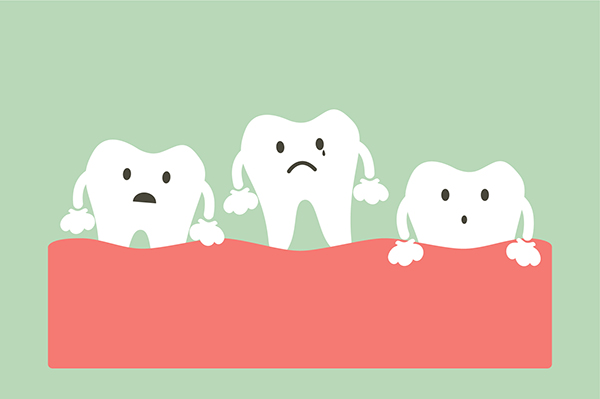 General dentistry focuses on preventative dentistry, but it also includes restorative treatments that address problems like a loose tooth. A tooth becoming loose may eventually lead to it falling out of its socket, so such issues should never be ignored.
General dentistry focuses on preventative dentistry, but it also includes restorative treatments that address problems like a loose tooth. A tooth becoming loose may eventually lead to it falling out of its socket, so such issues should never be ignored.
How general dentistry addresses loose teeth
General dentistry has multiple ways to address issues like a loose tooth. It often comes down to the reason that the tooth became loose in the first place. A general dentist can help diagnose the root cause of the problem so appropriate treatment can be performed.
How loose the patient’s tooth is also impacts the effectiveness of the treatment. Here are a few ways that a dentist addresses the different stages of loose teeth.
Slightly loose tooth
A slightly loose tooth sometimes ends up fixing itself. The dentist might advise the patient to avoid biting or chewing with the tooth while it heals. Sticking to soft foods can also help with the healing process. A mildly loose tooth should heal on its own within a week. The dentist will explore other treatment options if it remains loose after that.
Moderately loose tooth
A moderately loose tooth is dangerously close to falling out of its socket, so it requires immediate dental care. A dentist might opt to address it by using a splint to stabilize it in its socket. The splint is attached to the two teeth closest to the loose tooth, preventing it from moving. Keeping the tooth stable enables new bone and gum tissues to develop in its socket, holding the tooth in place.
Loose tooth due to teeth grinding
People who grind their teeth leave them exposed to extreme bite forces. The behavior typically occurs during sleep, so they might not even be aware of their condition. Teeth grinding leads to damaged teeth structures, and it can make teeth loose.
A dentist will address a loose tooth caused by teeth grinding by stabilizing it with a dental splint. A nightguard might be recommended to reduce the forces acting on the patient’s teeth while they sleep. The dentist will also try to diagnose why the patient grinds their teeth and provide a more permanent solution.
Loose teeth due to periodontal disease
Loose teeth can be a symptom of periodontitis, the advanced stage of gum disease. Left untreated, these teeth will eventually fall out of their socket. A dentist might recommend treatments like root scaling and planing to address the patient’s loose teeth.
The procedure involves removing tartar from teeth roots and their surfaces. It also includes polishing teeth roots, making it harder for tartar deposits to form on them. Treatments like bone grafts can also be used to fix loose teeth caused by gum disease.
We fix loose teeth
Our dentist can fix your loose tooth regardless of the cause. Give us a call or visit our San Antonio clinic to set up an appointment.
Request an appointment or call Culebra Family Dentistry at 210-787-1554 for an appointment in our San Antonio office.
Related Posts
Regular general dentistry visits can help maintain your dental health. This can apply to your family as well. Spotting dental issues early can improve your dental health. If you want to know why general dentistry can ward off future dental problems, here are the details.Preventive general dentistry starts at an early age. Bringing a child…
General dentistry practices are focused on the long-term prevention of oral health problems for their patient to help them avoid the need for restorative care, which is more invasive and expensive. One way they help with prevention is by recommending effective toothbrushes and toothpaste.Choosing the right toothbrush and toothpaste can make a big difference in…
General dentistry recommends brushing twice daily and flossing once per day to protect your teeth against common dental problems like gum disease and tooth decay. Bacteria in the mouth can cause both issues.Oral bacteria feast on sugars left in the mouth after meals, forming plaque and acids that damage teeth. Plaque is the film that…
